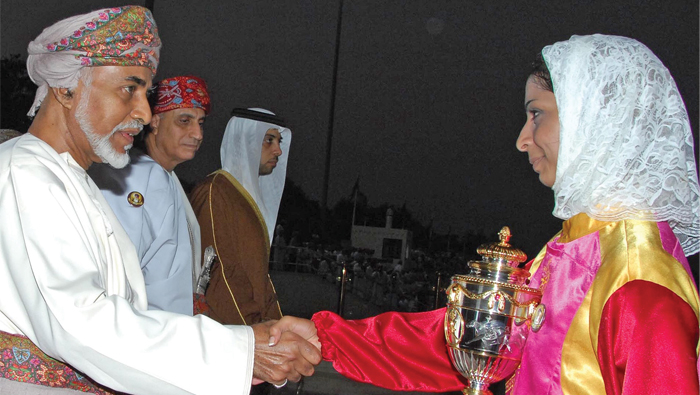
Muscat: The policies, plans and programmes, pursued by the Omani government since the dawn of the blessed Renaissance in 1970, reflect the participation of women in all fields.
Omani legislation has afforded women their rights, allowing them to play an important role in the nation’s development side by side with men, boosting their role in various fields as key players in the Sultanate's sustainable development.
In 2016, the Ministry of Social Development began the implementation of the Social Action Strategy, with the participation of local and international experts, and in cooperation with the United Nations Children’s Fund (UNICEF).
The strategy, which runs until 2025, has been developed according to three guiding principles: empowerment, equity, and social integration. The focus in the strategy is based on six themes, including family development related to the women’s affairs sector. It includes developing their productive skills, enhancing their political and social participation, legal awareness and the challenges of working women, in addition to following up on the implementation of the Convention on the Elimination of all Forms of Discrimination against Women (CEDAW).
The blessed Renaissance, stemming from the vision of His Majesty Sultan Qaboos bin Said, has given great importance to Omani women across the board. Women have responded, contributing to the comprehensive development process.
Through its various programmes, the Ministry of Social Development seeks to develop women's potential, build their capacities and skills, allow them opportunities to participate in development programmes, enable them to participate actively in their family lives and community affairs, and plan and carry out their programmes, while providing a wide variety of support and training.
Access to work and education for Omani women, in addition to their participation in various development fields, has contributed to the way in which society views the ability of women to work in a range of fields, rather than merely in agriculture, grazing or domestic work.
Today, women are employed in most fields.
Enjoying equal opportunities in basic and higher education to study various disciplines at colleges both within and outside of the Sultanate, women have achieved fared well in education, obtaining high positions in specialised areas that were previously dominated by males.
The combined report of the Sultanate’s second and third CEDAW in 2016 stated that the Sultanate has been keen to pay attention to the situation of rural women and has supported their many roles, including their work in the non-monetary sectors, as the work of rural women is counted within the national product in commercial records, municipal licences and agricultural tenure cards for rural women’s projects.
The Sultanate marks Omani Women’s Day on October 17th every year.
Figures provided by the National Center for Statistics and information on the qualitative composition of the Omani population indicate that there were 2.1 million Omani women in 2016, 41 per cent of whom belong to the 0-17 age group, while 23.6 per cent belong to the 18-29 age group.
Female employees in the government sector at the end of 2016 accounted for 41.5 per cent of the total number of employees, while their share in the civil service sector was 47 per cent. The percentage of females in top and middle management jobs and direct civil service was 21 per cent. Female employees in the private sector accounted for 24 per cent of the total number of Omanis working in the sector. At the end of July last year, there were 59,144 female workers, out of 236,708 Omani workers in the private sector.
In terms of political participation, Omani women have the right to exercise the political rights guaranteed by the nation’s laws. The law for the election of Majlis Al Shura members was issued by Royal Decree No.58/2013, indicating the conditions of elections in the Council.
In accordance with the provisions of the Basic Law of the State, women have the right to seek election or to elect without any conditions or restrictions that discriminate between men and women.
Women in the State Council represented 17 per cent of the total members during the current 6th term and 1 per cent in the 7th term of Majlis Al Shura 2016-2020, along with 3.40 per cent in the municipal councils for the period 2016-2020.
The Sultanate joined the Convention on the Elimination of All Forms of Discrimination against women with Royal Decree No.42/2005. The Ministry of Social Development, represented by a number of government and civil authorities, formed a committee to follow up the implementation of this convention.
The Sultanate has protected women from all forms of violence, including sexual violence, domestic abuse and sexual harassment in the workplace, through a number of laws, including the Labour Code.
Furthermore, Omani women represent their country in international forums and there are many Omani female employees working in the diplomatic corps. The representation of women in the diplomatic field witnessed remarkable development from 2011-2015, as the number of women working in the Ministry of Foreign Affairs reached some 219 employees, with this figure representing eleven per cent of the total.